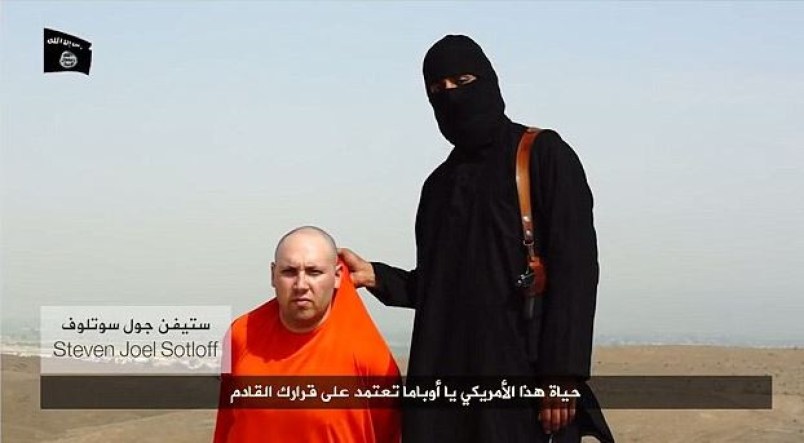Before launching off on this discussion, let me say that I realize that many people will say that my premise is simply wrong. The country is so scared about terrorism today because the objective conditions have become more threatening. There’s certainly some evidence for that. We just saw a major, well-planned terror attack in Paris, followed only a couple weeks later by a smaller but still very lethal attack in San Bernardino, California. Some of the reaction is feeding off heat spun off by the GOP primary battle, with each candidate vying with his rivals for a more terrifying and apocalyptic version of the terrorist threat, with Fox News chiming in with an almost constant mix of scare stories, fabulism and incitement. Today Rick Santorum’s PAC put out an ad warning that bands of radicals are waging “world war III” against us. But let me just suggest that these events alone don’t fully explain the climate of something bordering on panic that is abroad in the country today.
For points of comparison, let’s consider some past events.
1. The 2004 Madrid train bombings, 191 killed.
2. The 2005 London transit bombings, 56 killed.
Obviously there have been numerous other high casualty terror attacks across the Middle East and around the world over the last fourteen years. But these are the two that are broadly similar to the Paris attacks – high casualties, targeting a major European capital.
With a domestic attack, the Boston marathon bombings in 2013 didn’t have the death toll of the San Bernardino attack (3 or 5 deaths, depending on how you count them) compared to 14. But Boston was live on national TV and had a major US city on something like lockdown for days. It was a major, major terrorist attack, albeit by lone wolf attackers.
None of these events are quite comparable. They’re all different. But we’re now seeing polls showing that Americans are more worried about a terror attack than even just after 9/11. For those of us who were fully into adulthood just after 9/11 when many believed we’d soon see other catastrophic terror attacks, that’s amazing. It seems to require some level of explanation that goes beyond just recent events. To put the point differently, it’s not that people don’t have reason to be concerned. They do. But we’ve had at least comparable reasons before. And it didn’t seem to throw the country for quite the loop it now is.
I think the answer is not so much ISIS as ISIS’s brutally effective propaganda going back more than a year but particularly in the summer and fall of 2014. As I wrote in September 2014, the videotaped decapitations of journalists James Foley and Steven Sotloff had a massive, galvanizing effect on US public opinion. These were obviously horrible videos and dreadfully effective propaganda. But obviously, unless you were a journalist or aid worker in Syria, this was not something likely to happen to you in the United States. What I do think these videos did was put a horrifying and chilling face on the new focus of threat, a new terrorist force that either directly or indirectly wanted to hurt Americans.
Even at its height, al Qaeda didn’t do anything like this. They perpetrated horrific attacks. But their videos, when Osama bin Laden was still doing them, tended to be rather cerebral affairs, an odd looking guy speaking in Arabic with references to Islamic history and infidels and crusades. ISIS’s propaganda is nothing like that. In a very specific way it is much more focused on Western audiences than the old al Qaeda videos were.
To be clear, none of this is meant to suggest that ISIS doesn’t represent a genuine threat. As I’ve argued, I think ISIS is enough of a threat that we should deemphasize Assad and pull together as many states as we can to dislodge ISIS from its statelet in Iraq-Syria. But I think it’s worth noting that we are still very much under the thrall of ISIS propaganda.






